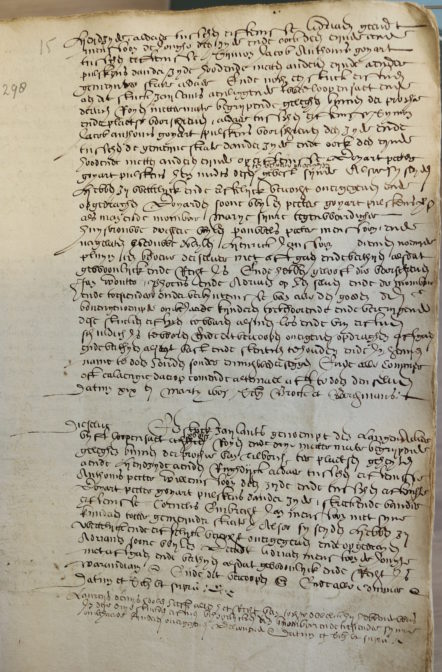The Dutch word transport can simply mean transport, but in legal records it means the transfer of property. Deeds of sale are sometimes called transportakten [transport deeds] or are recorded in transportregisters [transport registers].
Transport deeds will mention the previous and new owners, any rights or encumbrances attached to the property (like tithes, right of way), and a description of its location.

Coolen transport record


To this could be added that any sale of real estate (and ships) in the Netherlands only becomes legal when the transport deed is officially registered, both historically and currently. So one can find a contract of purchase / sale in the notarial records or voluntary civil legal records as a private transaction. This deed makes the sale / purchase binding between the parties, but does not regulate the transfer of the good in legal terms. The transfer only becomes legal when a deed of transport is passed *and* officially registered. Note that before the nineteenth century there could be a considerable period between contract of sale and registration of transport. With regularisations from the nineteenth century onwards the period between contract of sale and registration of transport deed was limited to few days.
In Amsterdam the transport deeds were historically called deeds of quittance (‘kwijtscheldingen’), referring to the (legal) finalisation of the transaction.